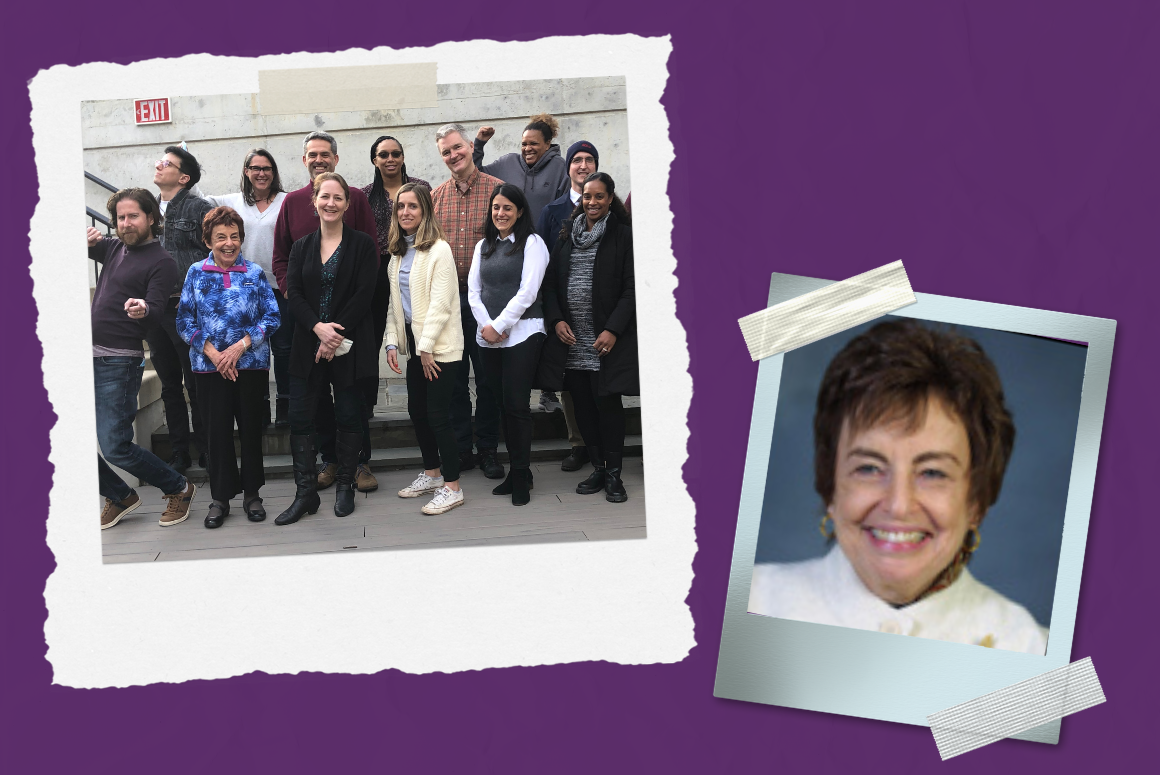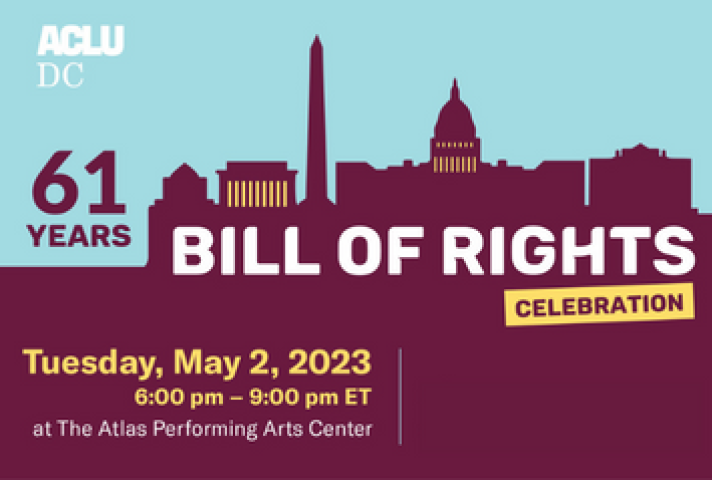With her Ph.D. fresh in her hand, political scientist Philippa Strum walked into the New York Civil Liberties Union office in the 1960s, eager to contribute her skills and expertise. She came ready to write, research, and strategize, but the first thing the men in the office asked her was whether she could type. So, Philippa turned around and walked out.
That could have been the end of her time with the ACLU, but, fortunately, a colleague asked her to join the ACLU’s Academic Freedom Committee in the 1970s, and Philippa has played an instrumental role in the organization ever since. For over forty years, Philippa has been actively making history as an ACLU board member and expertly documenting and teaching civil liberties, human rights, and constitutional law. A scholar of civil liberties and rights, Philippa has authored dozens of influential books on ACLU history, key Supreme Court decisions, and political and legal histories of our rights. Most recently, she published On Account of Sex: Ruth Bader Ginsburg and the Making of Gender Equality Law, which details how Ruth Bader Ginsburg advanced women’s rights and gender equality through litigation before she became a Supreme Court Justice.
We are delighted to honor Philippa Strum with the Spitzer Lifetime Achievement Award at our Bill of Rights Celebration on May 2. Get your tickets here to meet this remarkable history-maker.
Philippa grew up in Brooklyn, where her father taught in public schools and her mother worked as a school secretary. When the time came for kindergarten, Philippa’s parents sent her to the local public school, where all of Philippa’s classmates were Puerto Rican children whose families had very recently moved to Brooklyn. Young Philippa watched teachers often treat her classmates poorly, even mocking them for not being fluent in English. “When I saw the way that the teachers treated the kids, I knew something was really wrong, and I started feeling that you really have to treat everybody properly.” Her mother created a Parent Teacher Association, held one-woman sit-ins until the school got enrichment funds, and refused to allow the school to segregate children based on perceived abilities.
Being a woman in academia proved to have its own challenges. The Chair of the department where Philippa was teaching as she earned her Ph.D. told her that no woman would ever get tenure in his department because women belonged at home taking care of their husbands and children. At Rutgers University, she had to threaten a lawsuit to finally get tenure, while less-experienced men were promoted. As a single mom of two teaching at Brooklyn College, she discovered that she was paid significantly less than the men in her department, only to be told that the disparity made sense because men had families to support. Wages were only raised when women across the City University of New York eventually sued.
Galvanized by these experiences, Philippa has been rolling up her sleeves to make persistent strides toward equity, diversity, and inclusion at the ACLU. As a member of the ACLU’s Academic Freedom Committee, Philippa took up the question of the ACLU policy toward affirmative action at universities immediately after the Supreme Court first considered the issue. “It just seemed absolutely natural to me,” said Philippa. “If some people have been held back by the society, it’s time for the society to compensate for that.” She championed affirmative action policies at the ACLU and insisted that women and racial minorities be included in initiatives to diversify. For Philippa, internal diversity is necessary for the ACLU to advance civil rights and liberties because, as she explains, “we are much stronger when we hear from people from many different walks of life.”
Her push for affirmative action prompted the ACLU’s Women’s Caucus, which existed at the time because there were so few women in the organization’s leadership, to recruit Philippa to run for the ACLU’s National Board. Philippa took her seat on the Board in October of 1979. From that day until she stepped down in 2015, she chaired or served on virtually every national ACLU committee on diversity, and her colleagues credit her with every step forward the organization took. “Philippa was one of the people who really hung in there on matters of equity,” recalled former ACLU National Board Member Judith Bendich. “She was always saying ‘We’ve got to do better. We can’t talk about this if we don’t do it ourselves.’” Considering race, gender, sexuality, and disability among other intersectional identities, Philippa has persistently pushed the organization to expand the scope of who is included and valued as a leader and a member.
Part of what has made Philippa such an effective champion is the respect she commands with her gracious demeanor and thoughtful rigor. “When she stood up in a room, everybody got quiet,” remembered former ACLU National Board Member Calien Lewis. “Everyone listened to Philippa because they knew that what she contributed was worth listening to, even if they didn’t agree with her.” As a matter of practice, Philippa carefully listens to, considers, and finds a way to acknowledge the rationality of arguments that she may disagree with before offering her own analysis and position. Philippa also brought to the ACLU her intellectual rigor and ability to translate complex issues into language that everyone could understand. Former Deputy Executive Director Dorothy Ehrlich recalled that Philippa was the first person who came to mind whenever the board needed to resolve a challenging question, saying, “The more complicated, the more likely we were to call upon her.”
One such question was the issue of gun rights. When asked to be on the committee considering ACLU policy toward the Second Amendment, Philippa read everything she could about the issue and carefully considered both polarizing arguments – that individuals had an absolute right to own a gun, or that only militias had a right to guns. After research and collaboration, Philippa offered an interpretation that put the two positions together. She wrote that the Second Amendment protects an individual right, but that the authors of the Amendment also recognized that it was legitimate for the government to limit those rights in the name of public health and safety. Her proposed policy was adopted as the ACLU’s position. That was a proud moment for Philippa and a remarkable one for everyone who worked with her on it.
Given all that she has done to advance civil rights and liberties, we are excited to honor Philippa with the Spitzer Lifetime Achievement Award at our Bill of Rights Celebration on May 2. Get your tickets here and join us as we celebrate Philippa and other honorees who do the critical work of protecting and expanding our civil rights and liberties every day.
Many thanks to Philippa Strum, Dorothy Ehrlich, Judith Bendich, Calien Lewis, and Andrew Domingue for their contributions to this blog.
Date
Wednesday, March 29, 2023 - 10:30amFeatured image


